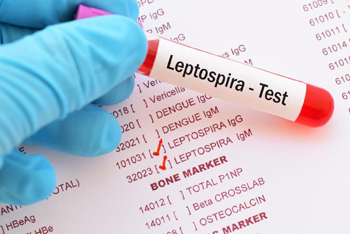
Leptospirosis and dengue cases on the rise in city
Mangalore Today News Network
Mangaluru, Sep 05, 2019: DK health officials confirmed at least 30 cases of leptospirosis, commonly known as rat fever, Dakshina Kannada - DK.
 “Among them, 17 cases are in Mangaluru city alone. People need to be cautious about the outbreak of leptospiroris,” District Surveillance Officer Dr Praveen Kumar informed reporters at Patrika Bhavan on September 4, Wednesday.
“Among them, 17 cases are in Mangaluru city alone. People need to be cautious about the outbreak of leptospiroris,” District Surveillance Officer Dr Praveen Kumar informed reporters at Patrika Bhavan on September 4, Wednesday.
The disease spreads through a bacteria called ‘leptospira’, which is present in the urine of infected animals. Human beings are infected when the bacteria enters human body through eyes, nose and open wounds. The symptoms include fever, head ache, diarrhoea, vomiting, stomach ache and pain in the muscles.
The symptoms of jaundice can also be found in some patients. Bleeding from the mouth and nose indicates seriousness of the disease. There are chances of infection in kidney and heart. Leptospiroris does not spread from an infected person to a healthy person. “The disease can be cured at an early stage,” the surveillance officer stressed.
“Care should be taken to see that water is not contaminated with the urine of animals. One should not consume or use infected water. Food items should be kept protected from rats. The surroundings should be kept clean and one should use footwear while walking in places where rats are found,” District Vector-borne Disease Control Officer Dr Navin Kulal said.
Dengue cases : There have been 957 ‘line-listed cases’ of dengue reported in the district in 2019 Dr Kulal said.
“Also, 1,341 malaria cases had been ‘line-listed’ in the same period. Biological control is an effective method to control mosquito population. Guppy fish should be released into unused wells and other surface water sources. The Health Department has been harvesting guppy fishes for this purpose,” he said.
Dr Kulal further stated that, as per the new guidelines of the Health Department, the hospitals and clinics have been told to monitor the haemoglobin count of the patients, along with that of the platelet counts. The seriousness of dengue can be assessed by monitoring the haemoglobin count, he added.